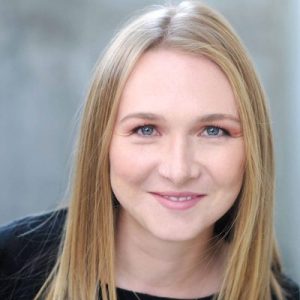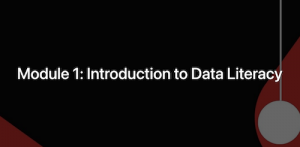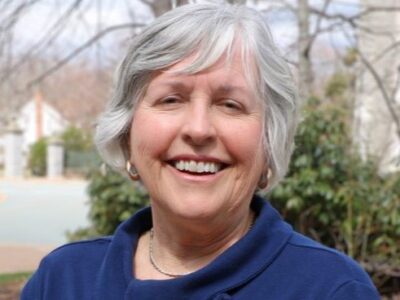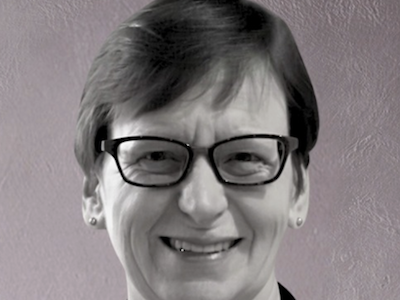 The Charity Insights Canada Project / Projet Canada Perspectives des Organismes de Bienfaisance (CICP-PCPOB) is an ambitious data-collection and data-distribution initiative about the nonprofit sector in Canada — and it’s now into its second year. In March, 2024, Callie Mathieson, the Chief Project Officer, spoke to PANL Perspectives about year two of the CICP-PCPOB.
The Charity Insights Canada Project / Projet Canada Perspectives des Organismes de Bienfaisance (CICP-PCPOB) is an ambitious data-collection and data-distribution initiative about the nonprofit sector in Canada — and it’s now into its second year. In March, 2024, Callie Mathieson, the Chief Project Officer, spoke to PANL Perspectives about year two of the CICP-PCPOB.
Question: We’re well into the CICP-PCPOB’s second year of data collection, analysis and dissemination. What are you focussing on?
![]() Mathieson: In 2024, the team is re-visiting and expanding on themes that we looked at in the first year, such as the effects of inflation and economic issues on charities, factors related to government funding, issues related to equity, diversity and inclusion, and other themes.
Mathieson: In 2024, the team is re-visiting and expanding on themes that we looked at in the first year, such as the effects of inflation and economic issues on charities, factors related to government funding, issues related to equity, diversity and inclusion, and other themes.
We’re coming out with more publications as well — in both French and English. You’ll be able to see these on our website, in the Research and Data section, as well as in blogs that analyze some of the data. The blogs offer insights that dig a little deeper than the weekly reports, and they’re less formal, more accessible, than the graphs and reports to date.
We’re also rolling out our new dashboard for the website, for the year-one data. The dashboard will be publicly available. People will be able to filter the data and see it in graph form — filter it by area of location, by size of organization, by sector of activity and by other filter options. The new dashboard will give people the ability to not only see stagnant graphs, but also unique graphs that they’ll be able to work with. That could be an exciting initiative, especially for smaller organizations. Later, we’ll do the same for year-two data. It’s important for organizations to look for data that’s relevant to them, that they can compare themselves to.
![]() And the bilingual weekly reports are still coming out, about different topics. We recently looked at uncompensated overtime in the sector, and some of those figures are wild; executive staff are basically, on average, providing an entirely extra week of unpaid work each month in the nonprofit sector. These are things that people who have worked in the sector have known about for a while, and now, we have consolidated data to show what’s happening.
And the bilingual weekly reports are still coming out, about different topics. We recently looked at uncompensated overtime in the sector, and some of those figures are wild; executive staff are basically, on average, providing an entirely extra week of unpaid work each month in the nonprofit sector. These are things that people who have worked in the sector have known about for a while, and now, we have consolidated data to show what’s happening.
Also, our next Data Summit will take place at Carleton University, in Ottawa, on Thursday, November 14, 2024. It will be a deep dive into the findings this year and will feature panel discussions and opportunities for the public to be involved. We’ll roll out more information about it closer to the day.
Q: Who’s providing the data for the weekly surveys this year? And what’s the weekly response rate?
Mathieson: Late last year, we began recruitment for approximately 1,100 panelists, and we started collecting weekly data in early January. We now have about 1,100 to 1,200 registered charities represented, and about a fifth of them are returning panellists from 2023, which is nice, because of the continuity. So, 900 to 1,000 charities, or panellists, are new this year, in 2024. And our response rates have been great this year. So far, 80 or 81% of panellists respond to weekly questions.
Q: The modules in the Community Education Centre (CEC) are changing. What are your plans for them?
 Mathieson: The CEC is a pillar of the CICP-PCPOB and promotes understanding of the data collected about the sector. We started with Data Literacy courses. Module 1 is “Introduction to Data Literacy,” and includes three capsules, including “Understanding Data, Information, Knowledge, and Wisdom.” The CEC revamp is an exciting initiative as we reimagine and expand these and the remaining modules.
Mathieson: The CEC is a pillar of the CICP-PCPOB and promotes understanding of the data collected about the sector. We started with Data Literacy courses. Module 1 is “Introduction to Data Literacy,” and includes three capsules, including “Understanding Data, Information, Knowledge, and Wisdom.” The CEC revamp is an exciting initiative as we reimagine and expand these and the remaining modules.
Initially, for example, we aimed to do videos for every single module, and tried to make them as easy to interpret as possible, which we’re still doing, but we’ll add more text to supplement the videos. One new thing we’d like to add to module one is a focus on data in the nonprofit sector — giving people an idea of what that data looks like and how it can be used in the section. In addition, we’d like to add something about methods of collecting data and different data sources, as well as an introduction to data analysis and interpretation and how to use data for decision making in our sector. Those are just some of the topics we’d like to cover in module one.
Q: CICP-PCPOB is now running monthly discussion sessions. Can you explain what these are?
Mathieson: The live sessions are chats about the CICP-PCPOB’s latest data, including hearing people’s reactions and ideas. There are three organized so far. Dr. Paloma Raggo is leading those, starting on March 20, April 10 and May 8, 2024. People can register to participate at no cost, and a link will be emailed to participants after registration.
To receive the CICP-PCPOB’s data and publications (in French or English), please sign up for their free newsletter.
Tuesday, March 19, 2024 in CICP (English), CICP-PCPOB, Data Discoveries, For homepage, News & Events
Share: Twitter, Facebook



